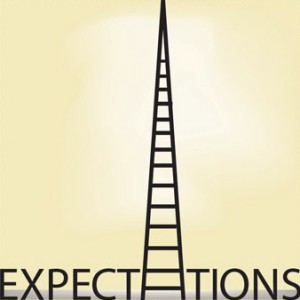
{The demographic details in this post have been disguised.}
If I were to tell College-Aged Client (CAC) that his “case” has inspired me to write a blog post, he might very well throw up. Not because he would be disgusted to be an inspiration, but because that is what someone who is smart and funny and depressed all at the same time might say.
His is not an atypical Chinese upbringing: hardworking and upwardly-mobile parents, schooled in institutions renowned for producing prominent leaders, forced to learn piano or violin (and if he were a girl, probably ballet as well), flanked by a cadre of successful cousins and competitive friends, and expected to head towards either Cambridge or Oxford to study: (1) medicine, (2) law, or (3) accounting. OK, engineering also can.
Well, CAC did not make Oxbridge. But at least he got into one of the Top 100 of the Times Higher Education World Ranking Universities. And the major he chose: medicine. Why?
“Because.” He answered.
That was the best he could do by way of an explanation. He could not tell me why he stopped studying one day and started to play video games non-stop. He could not tell me why he stopped washing himself, or why he didn’t tell anyone he was skipping classes, or why he had picked up smoking. He could not tell me why his roommate had finally called emergency and had him admitted to see the psychologist for burning up his money — one bill after another — in the ashtray.
“Meh. Like that, loh,” he would end his sentences after telling me something revealing.
This is not the first time I have seen clients with such a presenting issue. I have seen at least a handful here in Malaysia. They seem to share some common traits: high achieving and wealthier parents, successful siblings, competitive friends, a history of hard work in secondary school, and they are smart (enough).
By and large, they are good kids (sorry, young adults — CAC called me “old” so I’m getting back at him). They have worked hard to do what their parents, siblings, and peers modeled for them or told them to do. But they did it without any real passion. When they hit college, they started to crumble. Something about the pressure at these Top 100 schools combined perhaps with exposure to the larger world hit them harder than their weakly constructed selves were able to endure.
And so, they ask questions that no one — least of whom, themselves — can answer. They get stuck in a loop swinging from anger-at-the-world to self-hatred and back to anger-at-the-world again. With all the swinging back and forth, they finally end up either stuck inside some addiction or contemplating how nice it would be to end their lives — or both.
These are not bad kids. They are not lazy; they are not druggies by nature; and they don’t necessarily have some genetically predetermined psychopathology. And pushing psychopharmacological gunk down their throats won’t necessarily help them either. What they are struggling with is something I am starting to call Expectation Burn-out.
For years, these CACs grew up living according to someone else’s expectations of what they were to do and who they were to become. So much so that when it came time for them to carve out a self-identity through a chosen vocation, they were unable to do so. They hated what they were studying in university (because they did not choose it for themselves), yet at the same time, they are unable to say what they would prefer to be doing. They are experiencing serious burn-out from living up to other people’s expectations. And I think, if unhelped, some of them may stay permanently burnt-out.
Clearly, with only a handful of cases, Expectation Burn-Out is a preliminary category for this phenomenon that I am observing. Grounded theory methodology suggests that I begin to memo and to code. So this is my first memo.
In closing for this memo, I would like add that I am very fond of my CACs. They are smart, they are good kids (he he), they have great intentions, but they are hurting and don’t know why or what they can do about it. (And so are their parents.) I want to help them by starting this line of research. Why?
Because you are worth it.
Yeah, you know who you are! 😉
—
© Johnben Loy, 2013. Unauthorized use and/or duplication of this material without express and written permission from this blog’s author and/or owner is strictly prohibited. Excerpts and links may be used, provided that full and clear credit is given to Johnben Loy and www.johnbenloy.com with appropriate and specific direction to the original content.

Y’know, at times I’ve wished it were more common here to take a ‘gap year’ between high school and uni. Some time off to try something different, live in the real world among real people (rather than in a bubble like an educational institution or surrounded by family), discover yourself, and all that jazz. I find that we move from one stage to another — kindergarten, primary school, secondary school, university, first job — so smoothly and quickly simply because it’s the “accepted thing” to do, what everyone else is doing. You always know what’s coming next, because it’s in the path chartered for you. The problem is that once you hit the business world, nothing is chartered; the path shimmers and fades. For example, now that I’ve completed my Masters I find myself a little lost, wondering, “What’s next?” because once you start your career, there’s no path other than simply climbing up the corporate ladder or going after ever greater achievements. But I don’t want to pursue a PhD simply because it’s the next thing to do after Masters. I don’t want to climb up to become Dept Head or Professor and end up burying my nose in research instead of teaching, which is my true passion. How many people think of these things instead of simply falling into the accepted pattern?
Hi ireneQ! I think that once economic considerations have been taken care of (or become secondary), it is then that we look to more meaningful pursuits in life. How nice if we can do both — earn enough doing the things we love to do. Sounds like you have found yours: teaching. Congratulations!
So I know this is a fairly old post. But have you made any progress with this line of research? Did this CAC of yours get over his burnt out stage?
Dear Viv, unfortunately, I’ve been too busy to follow through on this line of research.